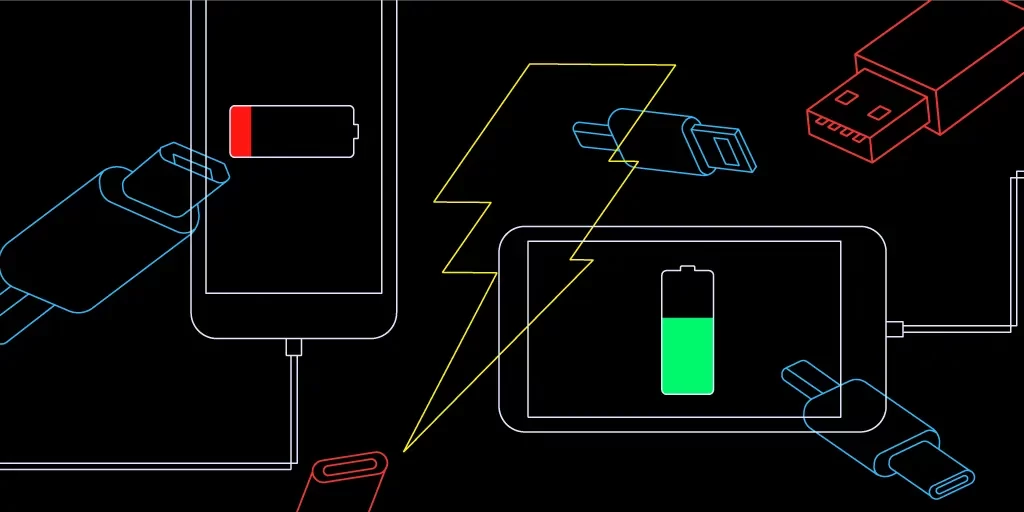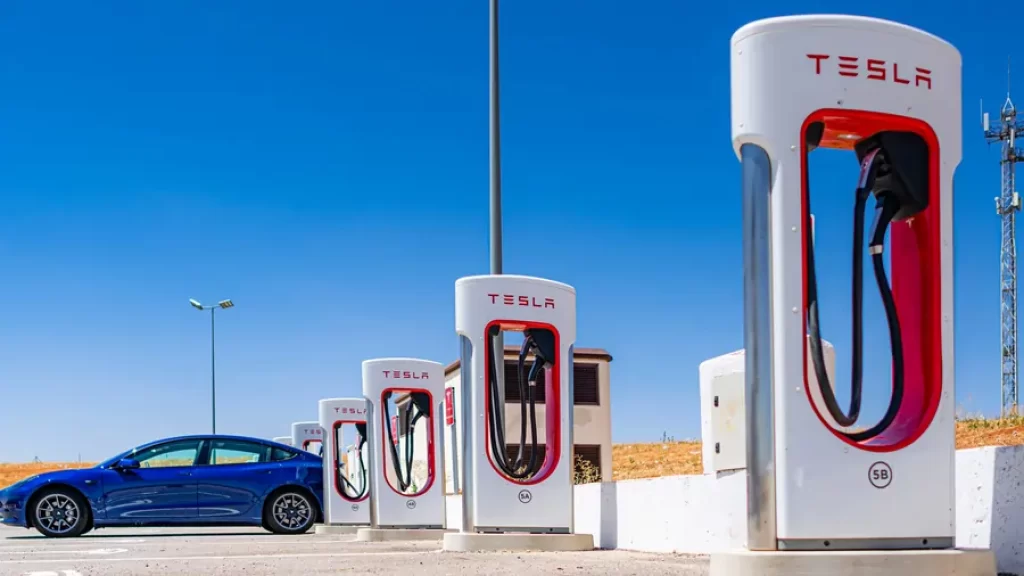
Fast charging capability is one of the major attractions drawing consumers towards electric vehicles (EVs). Compared to overnight charging for a full recharge, the ability to rapidly charge an EV battery in under an hour provides greater convenience and flexibility.
However, some EV owners have expressed concerns that repeatedly fast-charging their vehicles may hasten the deterioration of battery capacity over time. In this article, we dive deep into whether frequent fast charging reduces battery capacity in the long run.
Overview of fast charging
- Fast chargers supply high DC power output of 50kW or above directly into the battery.
- Can recharge an EV battery from 0 to 80% in 15-60 mins, depending on battery size.
- Significantly faster than AC chargers, which take several hours.
- Supported by newer EV models with high voltage systems.
- DC fast chargers are prevalent as public charging infrastructure.
Factors impacting EV battery capacity
Several factors naturally contribute to the lowering of usable battery capacity as an EV age:
Cycle aging
- Repeated charge-discharge cycles degrade the battery over time.
The rate of degradation depends on the depth of discharge and recharge.
Calendar aging
- Gradual, irreversible chemical changes due to time passage, regardless of cycling.
High-temperature operation
- Exposure to high ambient temperatures during operation accelerates battery aging.
Fast charging patterns
- Frequent fast charging may aggravate aging effects.
So, while fast charging is not the sole factor, it is one of the operational factors that could influence long-term battery capacity along with cycling, age, and temperature exposure.
Does Fast Charging Reduce EV Battery Capacity Faster?

Many studies have aimed to ascertain the impacts of fast charging on EV battery degradation over extended usage. Here are some of their findings:
Research conclusions
- Fast charging was found to induce more stress than slow AC charging.
- However, with thermal management, the impact on capacity is limited.
- Excessive fast charging in hot climates contributes to faster decline.
- Adverse effects are more pronounced in older battery chemistries.
- Modern batteries are designed to minimize fast charging impact.
Field data
- Data from Tesla vehicles shows only moderate battery capacity loss over the years.
- Nissan Leaf data indicates minimal long-term effects from fast charging.
- Hyundai Kona EVs show marginal further capacity drop with high fast charging.
Manufacturer guidance
- Most automakers ensure fast charging does not accelerate degradation significantly.
- Recommend minimizing widespread fast charging where possible.
- Suggests a combination of moderate fast charging and overnight AC charging for best battery longevity.
In summary, while extremely heavy fast charging patterns can hasten battery decline in certain conditions, most evidence indicates that well-designed modern EV batteries can handle normal fast charging well. The effects on long-term capacity are moderate if fast charging is not excessive.
EV Battery Capacity Loss Comparison
To better understand the effects of fast charging, let us compare how much battery capacity degrades normally over the lifespan with versus without significant fast charging usage.
Typical battery capacity loss over the lifespan
| Years | Battery capacity remaining |
|---|---|
| 1 | 95% |
| 2 | 90% |
| 3 | 86% |
| 4 | 81% |
| 5 | 76% |
- A gradual capacity decline of 4-5% per year is typical as EV battery ages.
- Due to cycle aging, calendar aging, and temperature factors.
Also Read: Why Battery Capacity Matters for Purchasing EVs in India
With regular fast charging
| Years | Battery capacity remaining |
|---|---|
| 1 | 94% |
| 2 | 88% |
| 3 | 82% |
| 4 | 76% |
| 5 | 70% |
- Slightly accelerated capacity drop of 1-2% per year.
- Due to additional stresses from frequent fast charging.
- It still has 5-7 years of useful capacity.
With excessive fast charging
| Years | Battery capacity remaining |
|---|---|
| 1 | 92% |
| 2 | 84% |
| 3 | 74% |
| 4 | 64% |
| 5 | 54% |
- Capacity decreases exacerbated by 3-4% annually.
- Indicates fast charging has substantially worsened battery wear.
- Depends on specific usage, charging patterns, and conditions.
The data indicates while regular fast charging only marginally hastens capacity loss, extreme fast charging behavior can degrade batteries much quicker. But occasional fast charging has a negligible detrimental effect on normal usage.
Tips For Minimizing Fast Charging Impact

- Avoid fast charging every day – use a mix of slower AC charging.
- Charge to 80% maximum if fast charging daily.
- Avoid fast charging multiple times in a day.
- Fast charge when the battery is more relaxed rather than hot.
- Use slower chargers for daily commutes if possible.
- Limit DC fast charging to long journeys where needed.
Moderating fast charging frequency and switching to regular AC charging whenever feasible will help maximize battery life.
Future Battery Improvements
With the rising fast charging capability of new EVs, here are some key battery advances that will minimize capacity loss:
- Improved thermal management to curb heat during fast charging.
- Advanced electrode materials that resist lithium plating at fast-charging high voltages.
- Solid-state electrolytes to cut down on undesirable side reactions.
- New battery chemistries like lithium titanium oxide with better stability.
- Optimized battery management systems to protect the battery.
- Enhanced diagnostics to monitor battery state during fast charging.
- Increased focus on durable cell design to handle repeated fast charging.
Recent Developments
Here are some notable recent news and developments related to the impacts of fast charging on EV batteries:
- Tesla has introduced its new 4680 battery cell with a tabless design that enables faster charging with lower degradation.
- StoreDot, an Israeli startup, is working on high-speed charging technology to add 200 miles of range in 5 minutes. Their battery aims to endure such rapid charging with minimal capacity loss through the use of proprietary compounds.
- Researchers at Penn State University have developed a machine learning method to optimize fast charging protocols personalized for an EV battery’s unique degradation characteristics.
- EV makers like Hyundai and Kia provide free battery health check-ups to assuage customer concerns about reduced range from fast charging.
- Porsche has introduced the new 800-volt system in its electric vehicles to enable faster charging while reducing battery stress through lower currents.
- MG Motors provides a free AC fast charger with its new Astor mid-size SUV to encourage slower AC charging over DC fast charging.
- A new EV battery swapping company called Battery Smart aims to eliminate fast charging capacity woes by simply changing in fresh batteries.
The capacity risks from fast charging continue to reduce with improving technology. But careful charging practices remain essential for maximizing the lifetime of an EV’s most expensive component, its battery.
Conclusion
Based on current research and data, frequent fast charging does lead to slightly accelerated battery degradation, but the overall effects are moderate for most modern EV batteries. Excessive fast charging can take a larger toll on usable capacity over time.
As EV makers push for ever-higher charging speeds, advanced engineering solutions will emerge to boost stability and minimize capacity loss even under fast charging duress.
But following manufacturer guidance on charging practices and avoiding unnecessary fast charging remains prudent advice for maximizing the lifespan of your EV’s battery.







